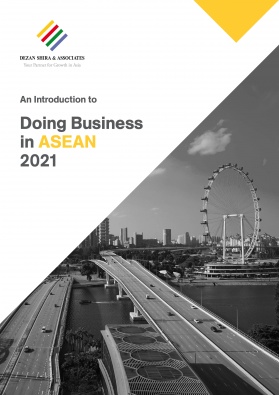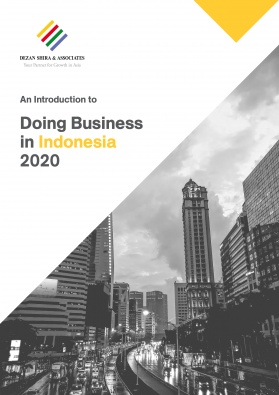The Indonesia-Singapore Reciprocal Green Lane: Salient Features
- Indonesia and Singapore established a ‘green lane’ on October 12, 2020, to facilitate business and official travel between the two countries. Applications were open from October 26.
- Travelers will have to adhere to strict health protocols, such as taking a COVID-19 test prior to and after arrival in both countries.
- Singapore has already established similar travel corridors with Malaysia, China, South Korea, Brunei, Japan, and New Zealand.
On October 12, 2020, Singapore and Indonesia established a reciprocal green lane (RGL) to facilitate business and official travel between the two countries. Applications for the RGL were opened on October 26.
To be eligible to utilize the RGL, travelers will need to adhere to strict health measures, such as undertaking a COVID-19 test before and after arrival in addition to keeping to strict travel itineraries. Singapore has established RGL’s with various countries in the region, notably China, Brunei, Malaysia, New, Zealand, South Korea, and Japan.The RGL is essential to resuming bilateral business activity, given Indonesia and Singapore are major economic partners. In the first half of 2020, Singapore invested some US$4.6 billion into Indonesia, an increase of 36 percent compared to the same period in 2019.
Additionally, Indonesians have deposits between US$200 to US$300 billion in Singaporean banks, accounting for some 40 percent of Singapore’s total banking receipts.
What are the perquisites to enter Singapore?
Those eligible to enter Singapore must be sponsored by a Singapore-based company or government agency who will file for a SafeTravel Pass on behalf of the traveler. The SafeTravel Pass is a mandatory document for all inbound travelers entering the country.
If a SafeTravel Pass has been approved, the sponsor will receive an email notification containing an approval letter and both documents must be presented to immigration officials upon arrival. Once the traveler has received their SafeTravel Pass, they can then apply for a visa, if required.
What are the pre-departure measures?
Prior to travel to Singapore, the applicant must have stayed in Indonesia for at least 14 days before departure. Further, they must take a COVID-19 PCR exam at least 72 hours before departure. This certificate must be presented to immigration officials in Singapore.
In addition to the aforementioned documents, the traveler must download and fill in the SG Arrival Card, which details the applicant’s health and travel history. Travelers are also reminded to provide proof of return air ticket.
Arrival in Singapore
Upon arrival in Singapore, the traveler will need to present their SafeTravel Pass, visa (where applicable), and travel documents.
They will then undergo another COVID-19 test, at their own cost. The Singaporean authorities have advised travelers to register and pre-pay for their COVID-19 test, although payment can be made upon arrival. Details can be found here.
It is the duty of the sponsor to provide transport for the traveler from the airport to their self-declared place of accommodation (these must be non-residential addresses). Here the traveler will remain until their test results are released.
If the traveler tests negative for COVID-19, they can proceed with their self-declared itinerary, adhering to relevant health protocols. If, however, they do test positive for the virus, they will undergo mandatory treatment at their own cost.
During their stay in Singapore, the traveler must download and subscribe to the TraceTogether and SafeEntry contact tracing apps.
What are the perquisites to enter Indonesia?
Indonesia has mandated that the sponsor (an Indonesian-based company or government agency) will apply for the traveler’s visa through the Directorate General of Immigration’s online portal.
The visa application must be submitted at least seven days before departure and there is a fee for the visitor visa of US$50, as well as a visa application fee of 200,000 rupiah (US$13).
What are the pre-departure measures?
As part of the visa requirements, the applicant must have stayed in Singapore at least 14 days prior to departure. The applicant must also take a COVID-19 PCR exam at least 72 hours before departure. This must be done from a registered healthcare institute in Singapore.
The sponsor must also submit, as part of the visa application, a separate health certificate stating the applicant is fit to travel, and a consent letter stating that the traveler will undergo mandatory quarantine or medical treatment if they contract COVID-19 in Indonesia.
There also needs to be a consent letter stating that the applicant is willing to be monitored in accordance with Indonesian laws during quarantine as well as personally bear the medical costs. Finally, the sponsor must provide proof of funds of at least US$10,000 to support the traveler’s expenses.
The visa will be sent electronically to the applicant.
The entry points for the RGL in Indonesia are at the Soekarno-Hatta International Airport and the Batam Center Ferry Terminal.
Arrival in Indonesia
Upon arrival in Indonesia, the traveler will need to present their negative COVID-19 certificate, fit to travel health card, and a valid e-visa.
They will then undergo another COVID-19 PCR examination (this cost approximately 900,000 rupiah (US$61) at the Soekarno-Hatta International Airport). The traveler will then proceed to their self-declared accommodation and await their test results.
If the traveler tests negative for the virus they can proceed with their business itinerary, however, if they test positive, then they will be accorded the appropriate treatment at their own expense.
About Us
ASEAN Briefing is produced by Dezan Shira & Associates. The firm assists foreign investors throughout Asia and maintains offices throughout ASEAN, including in Singapore, Hanoi, Ho Chi Minh City and Jakarta. Please contact us at asia@dezshira.com or visit our website at www.dezshira.com
- Previous Article Indonesia Issues Latest COVID-19 Immigration Measures
- Next Article Singapore Allows Entry of Travelers from Mainland China







